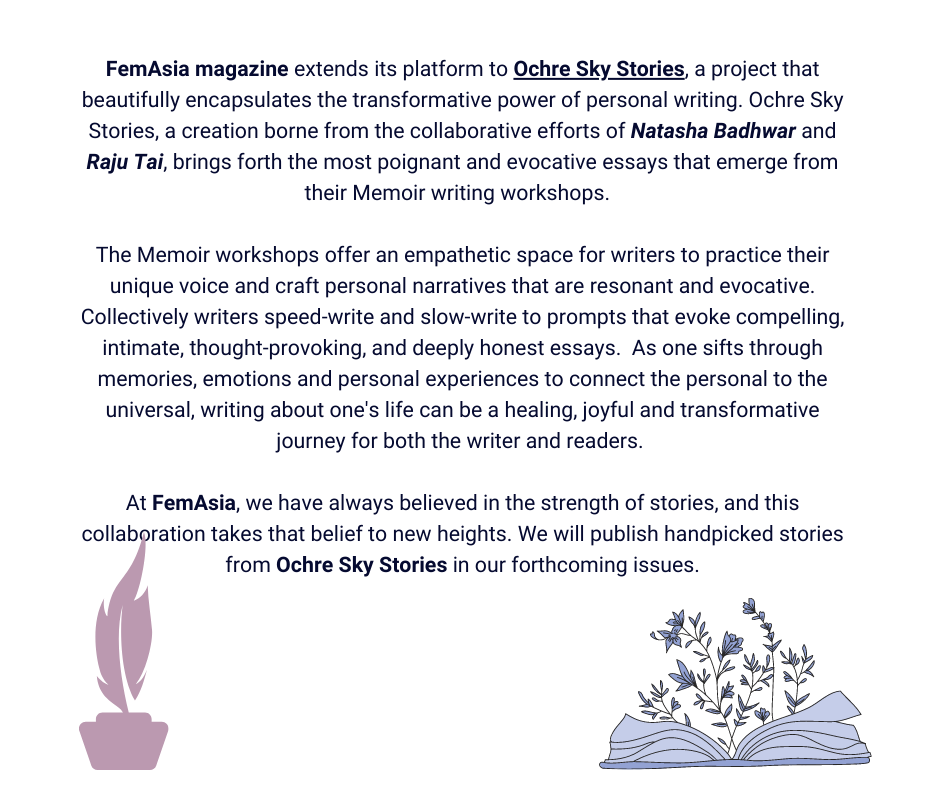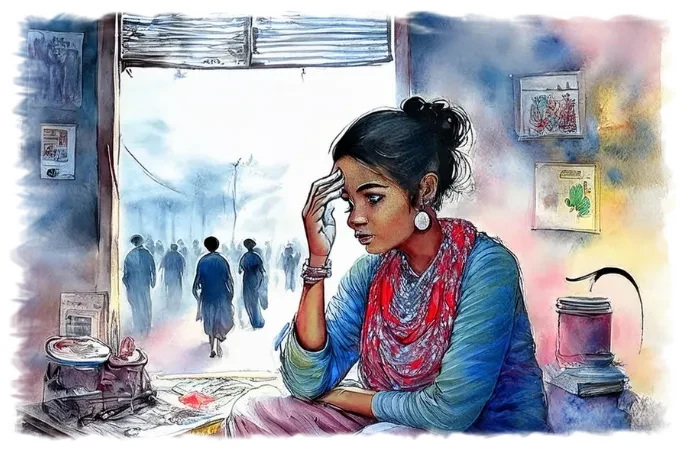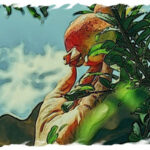T’s eyes were puffed and tired. She also had a headache. Sleep had proved elusive last night. And not just for her family but also for others who shared that slum location as their address. A few nights earlier, some houses in a neighbouring slum had caught fire. The flames had spread fast and by morning had ravaged that small settlement. Some held that it was an accident. A gas cylinder had burst. Others felt that this was intentional, an act of retribution possibly. But no one was sure for what. Or who were behind it. There were rumours that her slum could be targeted too. Suspicious strangers had been spotted lurking in the area at night. The families nominated a member each and formed night watch groups to guard the community and their space.
“Ki niye palabi? Jodi eirokhm hoye, takhun ki niye palabi? Eita amra discuss korchi,” she shared with a sigh. (What will you take if you have to suddenly run? If it comes to that, then what will you take with you if you have to run? This is what we have been discussing.)
Would they consider moving somewhere else temporarily?
“Na. Badi chhede jabo na.”
(No. We will not leave our home and go elsewhere.)
T had worked for the family for several years. She would wash the utensils and clean the house every morning. She knew the intimate details of our lives. We knew about her’s. This was a new, unsettling development.
Later, I sat down to work. I fumbled with the password on my laptop a couple of times before I finally got it right. I opened a Word file. But my mind was elsewhere. It was with T and her family. And I thought of my privileged life.
And, also, what would I take with me if I had to suddenly escape, suddenly run?
It could be a fire, an earthquake, a mob, a flood, a bomb.
Ki niye palabi?
Note
The italicised words are from Bangla language spoken in West Bengal and neighbouring states in India, Bangladesh and the diaspora elsewhere.
This work was written during the Ochre Sky Memoir writing workshop facilitated by Natasha Badhwar and Raju Tai.




